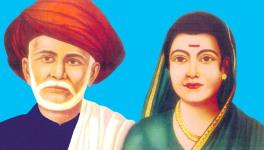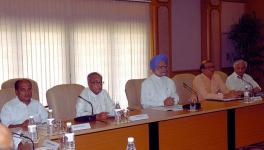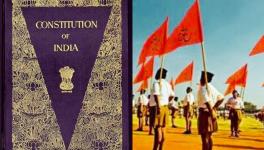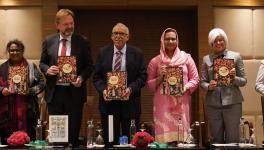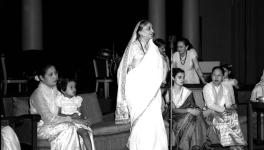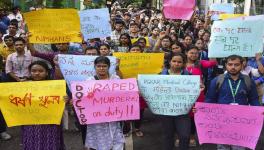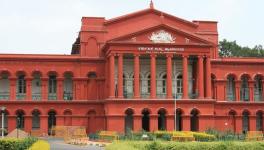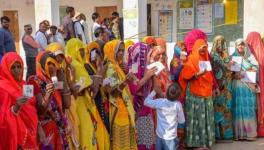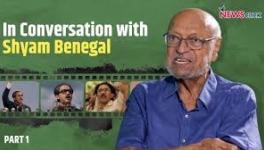Fatima Sheikh: Politics of Historical Erasure, Exclusion
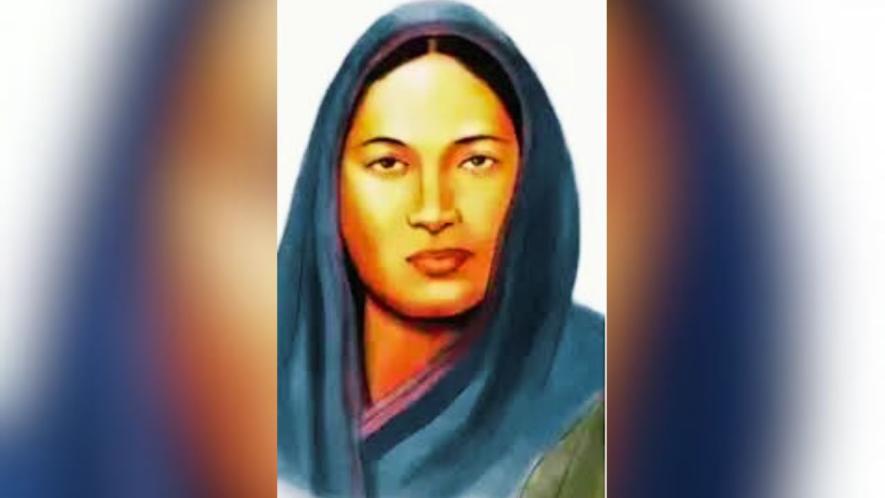
Fatima Sheikh. Image Courtesy: Mumbai Mirror
History is a battleground of power, a terrain where narratives are not simply told but wielded to maintain oppression. The stories we preserve and the silences we enforce are neither accidental nor benign; they are deliberate political acts designed to reinforce casteist, communal, patriarchal, and ableist hierarchies. The systematic erasure of marginalised voices from history is central to the ruling elite’s project of domination. It denies the oppressed their rightful place in the past and, by extension, in the present and future.
Take Fatima Sheikh, India’s first Muslim woman teacher. Her life and work alongside Savitribai and Jyotirao Phule embody the very essence of solidarity and resistance. Together, they challenged Brahmanical patriarchy and caste exclusion, striving for an inclusive education system that empowered the most marginalised. Yet there is an ongoing attempt to erase Fatima Sheikh from mainstream history, her legacy buried under layers of casteist and communal erasure. Her erasure is not a mere oversight but a calculated act, one that seeks to deny the very existence of intersectional struggles against oppression.
This politics of erasure is not isolated; it is part of a broader project to sanitise history, neutralise dissent, and normalise inequalities. By excluding figures like Fatima Sheikh, Dalits, Muslims, Adivasis, women, and persons with disabilities are systematically pushed to the margins of public memory and denied their rightful place in the nation’s narrative.
Historical Revisionism: Sanitising the Past for Oppression
The deliberate erasure of figures like Fatima Sheikh reveals a pattern of historical revisionism designed to sustain existing hierarchies. History is manipulated to present reform movements as caste-neutral, male-driven, and Hindu-led, obscuring the intersectional struggles that shaped them. By erasing Fatima Sheikh, the radical solidarity between Dalits, Muslims, and women is invisibilised, and the convenient, dominant narrative of typical prototype reformers as saviours is reinforced.
B.R. Ambedkar, for instance, is sanitised into a token figure, hailed as the architect of the Constitution but stripped of his scathing critique of caste and his revolutionary vision for an egalitarian society. His advocacy for reservations, a lifeline for educational equity, is sidelined even as these policies are viciously attacked today. Ambedkar’s fiery critique of Hinduism’s role in upholding caste oppression is deliberately erased from school curricula and public discourse, making it easier to appropriate him while gutting his radical ideas.
Similarly, the contributions of Muslim freedom fighters like Ashfaqulla Khan and Khan Abdul Ghaffar Khan are systematically downplayed to sustain communal stereotypes. Women like Jhalkaribai, the Dalit warrior who fought alongside Rani Lakshmibai, and Begum Rokeya, a Muslim reformer who championed women’s education, are excluded to uphold patriarchal and casteist narratives. Even Adivasi leaders like Birsa Munda, who fought against colonial exploitation and for Adivasi rights, are reduced to hollow symbols, their histories carefully erased to sustain their marginalisation.
But the silence is uneasy most of all when it comes to disabled individuals. Their absence from historical narratives is not just glaring but insidious. It reflects the deeply entrenched ableism in Indian society, which sees disability not as a social issue but as a private affliction to be ignored. This erasure denies disabled people even the most token representation, ensuring they remain outside the frameworks of education, policy, and society itself.
The Violent Silence of Ableism
The absence of discourse on disability in historical narratives is perhaps the most violent form of erasure. It is not just a denial of disabled lives but a refusal to even acknowledge their struggles and contributions. Ableist attitudes perpetuate the idea that disabled people are incapable of agency or participation in society, reinforcing their marginalisation.
Statements like “the deaf and blind do not go to school with others” go unchallenged, as though their exclusion is natural. This systematic exclusion reinforces invisibility of disabled, creating a narrative of othering and leaving a place only at the bottom of the social hierarchy, with no place in history and no claim to justice.
Ableism is a tool of domination, one that intersects with caste, gender, and religion to maintain systems of oppression. By refusing to document the lives and struggles of disabled people, society ensures an easy othering where disabled are invisible, unaccounted for, and unrepresented. This silence is not benign, it is violent.
Education: A Weapon of Exclusion
The erasure of marginalised voices from history is deeply tied to the politics of education. Education is not merely a tool for liberation; it has also been weaponised to exclude. By controlling whose stories are taught, dominant groups perpetuate the myth that Dalits, Muslims, Adivasis, women, and disabled people are undeserving of knowledge, power, or leadership.
This exclusion is evident in the privatisation of education, which transforms a fundamental right into an elitist privilege. Marginalised communities, already struggling under systemic oppression, are locked out of educational spaces, ensuring a continued cycle of poverty and exclusion. Reservation policies, which aim to provide equitable access, are constantly undermined. Their necessity is questioned as the struggles that birthed them are erased from public memory.
For disabled people, the exclusion is even starker. Accessible education systems and infrastructure are virtually non-existent, leaving them reliant on charity rather than rights-based systems. The very idea of education for the disabled is treated as an afterthought, ensuring they remain on the margins, locked out of opportunities for participation in society.
Reclaiming Radical Histories
To resist the politics of erasure, we must reclaim the radical histories of marginalised communities. Fatima Sheikh’s story must be restored not simply as a tribute to her legacy but as a weapon against the narratives that erase the struggles of Dalits, Muslims, Adivasis, women, and disabled people. The histories of Ambedkar, Jhalkaribai, Ashfaqulla Khan, Birsa Munda, and countless others must be told in their entirety, with their radical critiques and intersectional struggles at the forefront.
The absence of disability discourse must also be addressed. Disabled people’s lives and struggles must be documented, acknowledged, and integrated into mainstream narratives. This requires dismantling ableist attitudes and creating systems that recognise disability as a social and political issue, and not a personal battle.
The Politics of Memory and Justice
The politics of historical erasure is not just about the past, it is about controlling the present and foreclosing the future. By denying Fatima Sheikh and others like her their rightful place in history, the ruling elite seeks to sustain a system of exclusion that privileges dominant castes, religions, and abilities.
Fatima Sheikh’s legacy reminds us that education is not a privilege for the few but a right for all. Her work challenges the casteist, communal, patriarchal, and ableist narratives that underpin Indian society, offering a vision of education as a tool for liberation and solidarity. To honour her is to fight against the forces that erase her.
The fight against historical erasure is, ultimately, a fight for justice. It is a fight to ensure that history reflects the struggles and contributions of all communities, and that education becomes a tool to dismantle hierarchies rather than perpetuate them. This fight demands that we challenge the dominant narratives, expose their silences, and reclaim the radical potential of memory to inspire resistance and solidarity. Let us carry forward this fight, with the legacy of all those erased from history as our guide; while it remains important to ask ‘who benefits from these erasures?’
Shirin Akhter is Associate Professor, Department of Economics, Zakir Husain Delhi College, University of Delhi. Sharamisthaa Atreja is Assistant Professor at the Department of Philosophy, University of Delhi. The views are personal.
Get the latest reports & analysis with people's perspective on Protests, movements & deep analytical videos, discussions of the current affairs in your Telegram app. Subscribe to NewsClick's Telegram channel & get Real-Time updates on stories, as they get published on our website.










